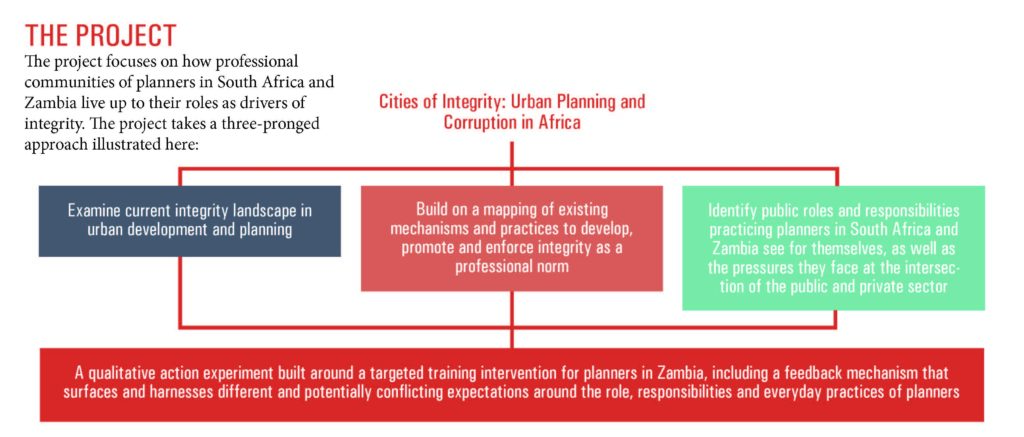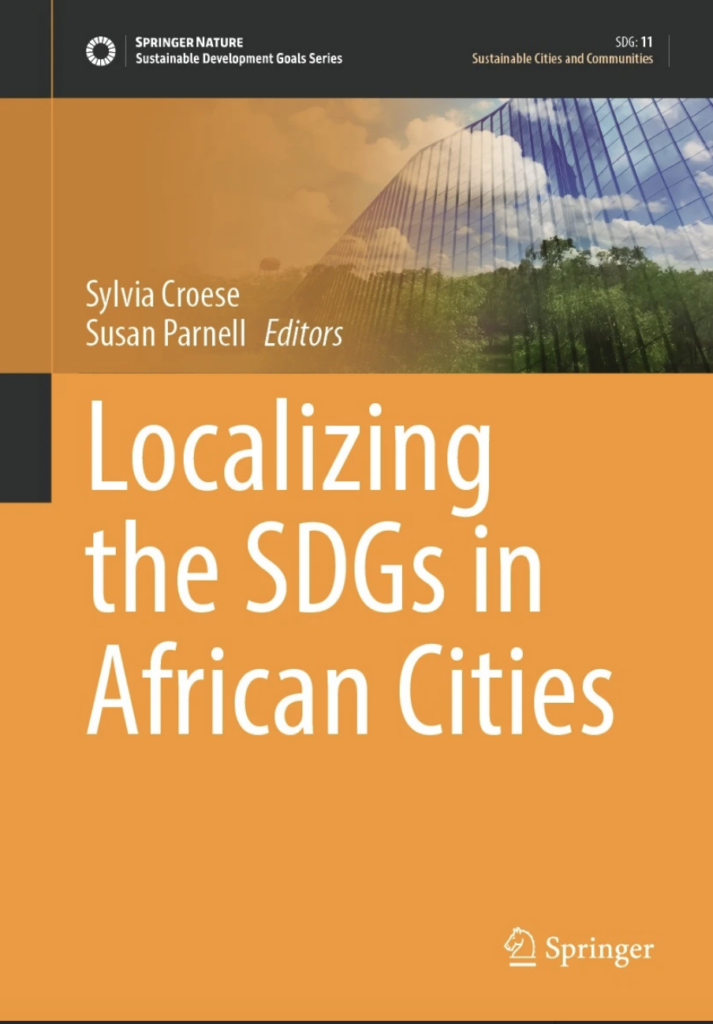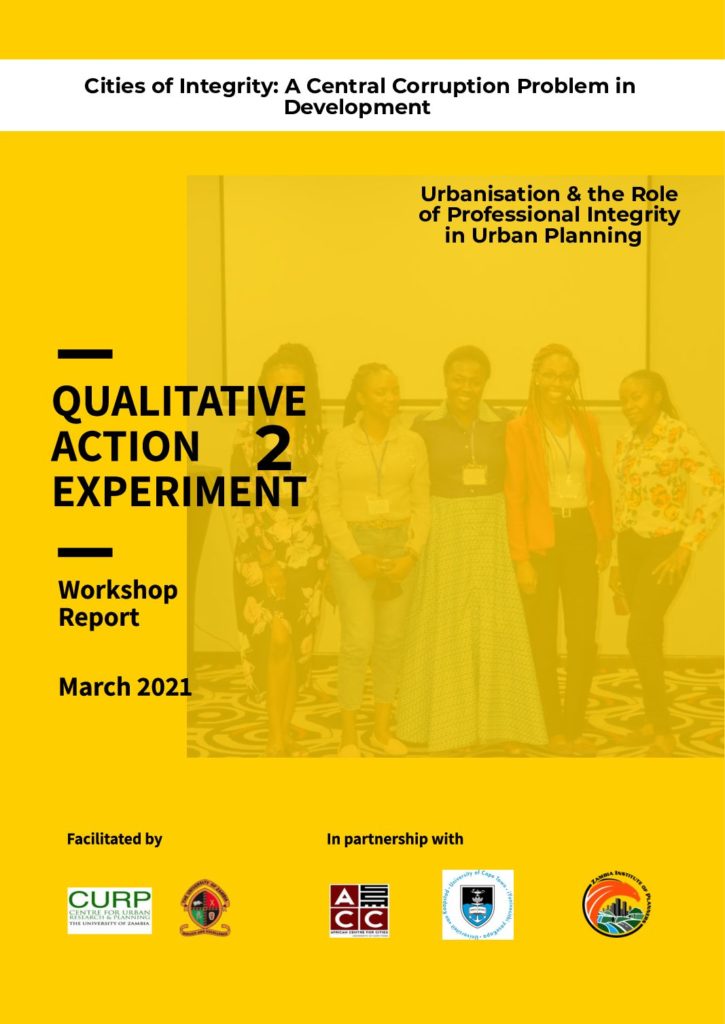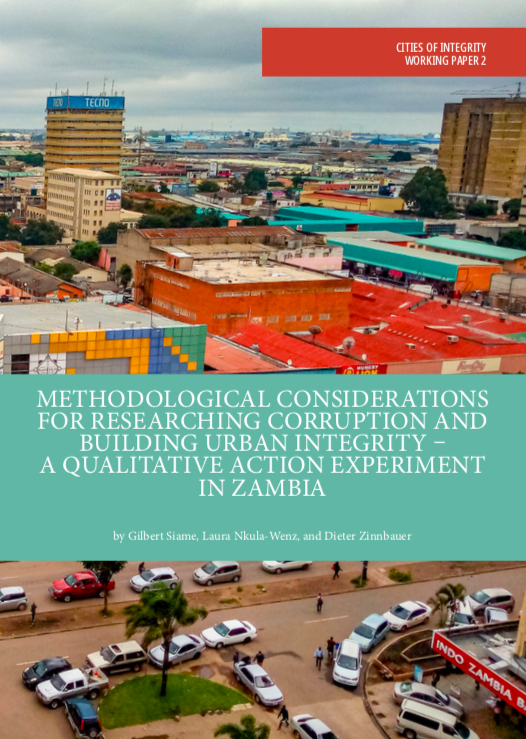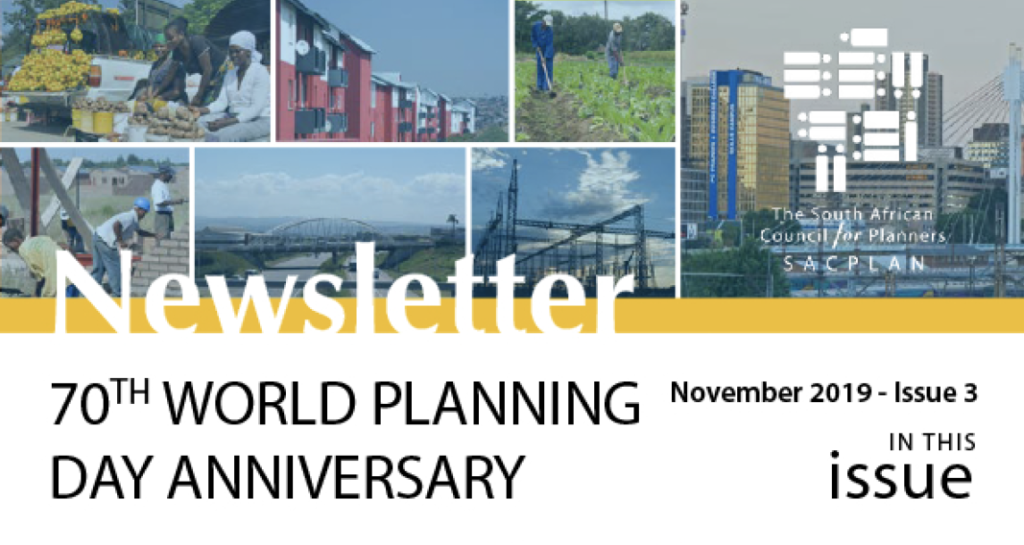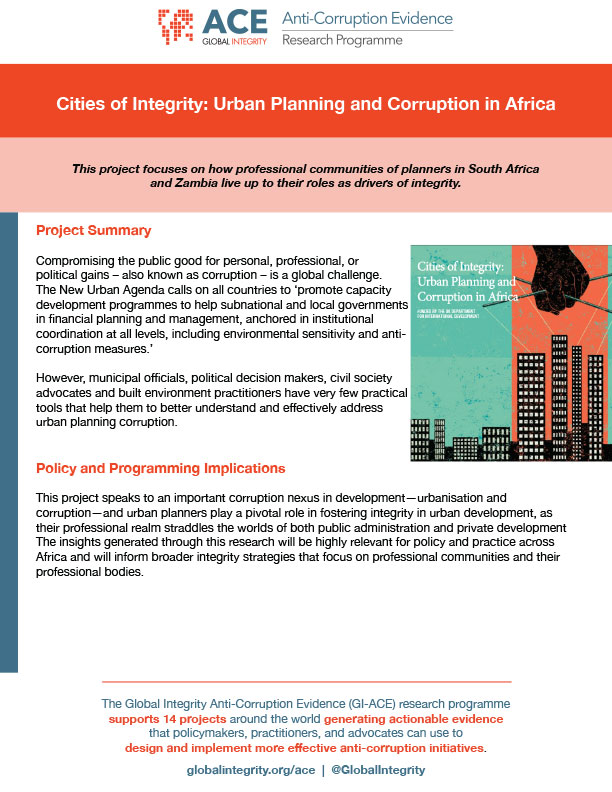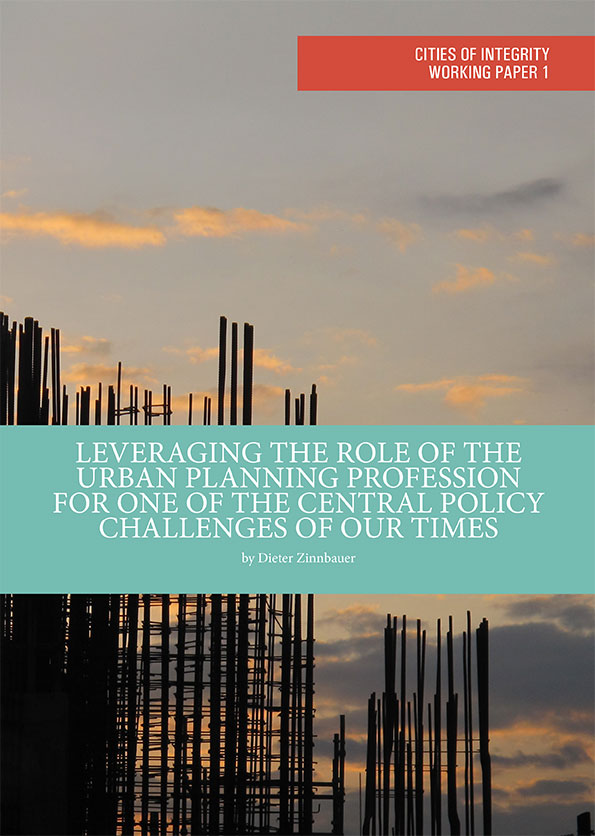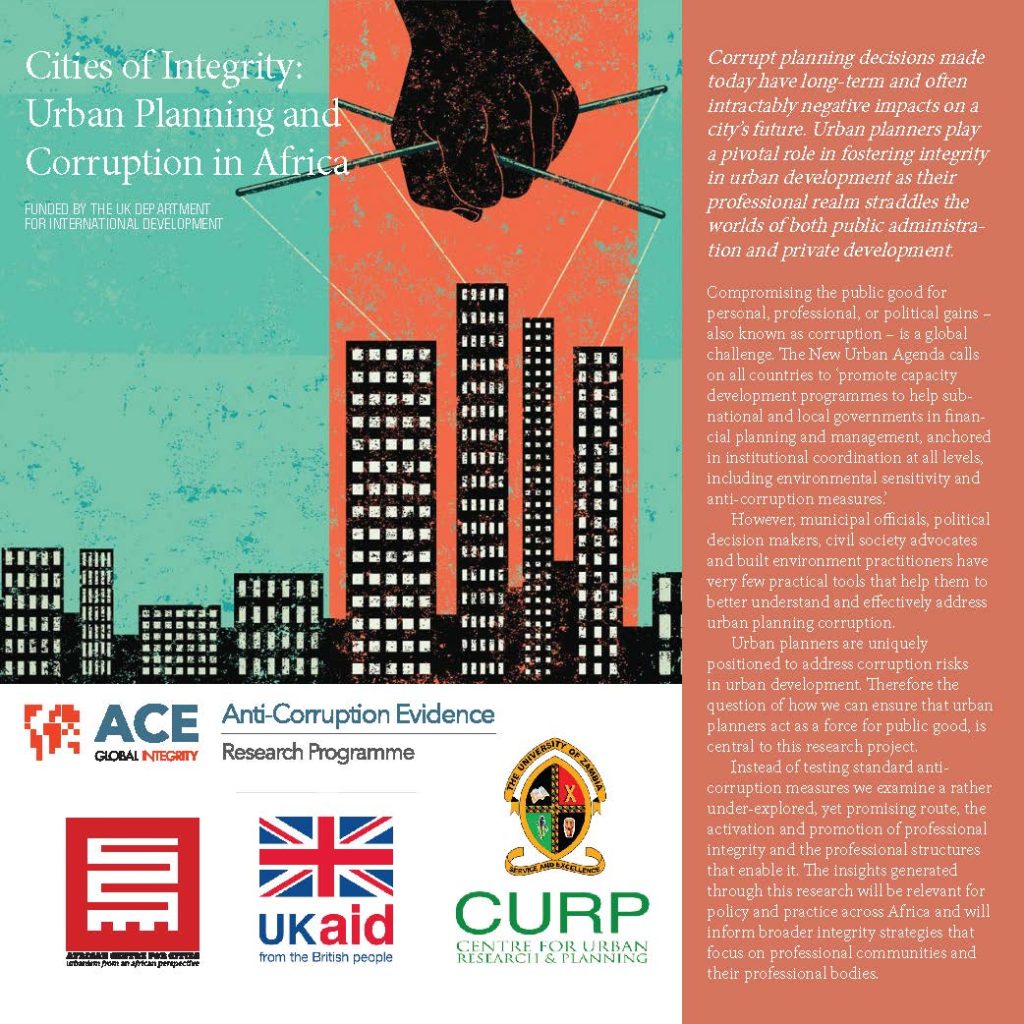Cities of integrity: Urban planning and corruption in Africa
This project focuses on how professional communities of planners in South Africa and Zambia live up to their roles as drivers of integrity.
Click here for the Project One-Pager
To learn more about this project, contact Principal Investigator Vanessa Watson or visit the project web page at africancentreforcities.net/programme/gi-ace.
Project Summary
Compromising the public good for personal, professional, or political gains – also known as corruption – is a global challenge. The New Urban Agenda calls on all countries to ‘promote capacity development programmes to help subnational and local governments in financial planning and management, anchored in institutional coordination at all levels, including environmental sensitivity and anti-corruption measures.’
However, municipal officials, political decision makers, civil society advocates and built environment practitioners have very few practical tools that help them to better understand and effectively address urban planning corruption.
Policy and Programming Implications
This project speaks to an important corruption nexus in development—urbanisation and corruption—and urban planners play a pivotal role in fostering integrity in urban development, as their professional realm straddles the worlds of both public administration and private development The insights generated through this research will be highly relevant for policy and practice across Africa and will inform broader integrity strategies that focus on professional communities and their professional bodies.
Research Questions
- Given the way in which urban planners are uniquely positioned to address corruption risks in urban development, how can we ensure they act as a force for public good?
- In focusing on the increasingly important subnational municipal governance level, what can we learn about the important and long-term consequences for urban development of the decisions and professional conduct of urban planners?
Methodology
Instead of testing standard anti-corruption measures, this project examines a rather under-explored, yet promising route—the activation and promotion of professional integrity and the professional structures that enable it. The project takes a three-pronged approach, using a qualitative action experiment built around a targeted training intervention for planners in Zambia, including a feedback mechanism that surfaces and harnesses different and potentially conflicting expectations around the role, responsibilities, and everyday practices of planners:
- Examine the current integrity landscape in urban development and planning;
- Build on a mapping of existing mechanisms and practices to develop, promote and enforce integrity as a professional norm; and
- Identify public roles and responsibilities practicing planners in South Africa and Zambia see for themselves, as well as the pressures they face at the intersection of the public and private sector.
Research Team Members
-
Vanessa Watson (RIP), Professor, University of Cape Town
-
Gilbert Siame, Lecturer and Researcher, University of Zambia
-
Laura Nkula-Wenz, Lecturer, African Centre for Cities
-
Dieter Zinnbauer, Senior Project Advisor
-
Stephen Berrisford, Associate Director, Pegasys
- Christian Alexander, Project Researcher (South Africa)
- Dorothy Ndhlovu, Project Researcher (Zambia)
